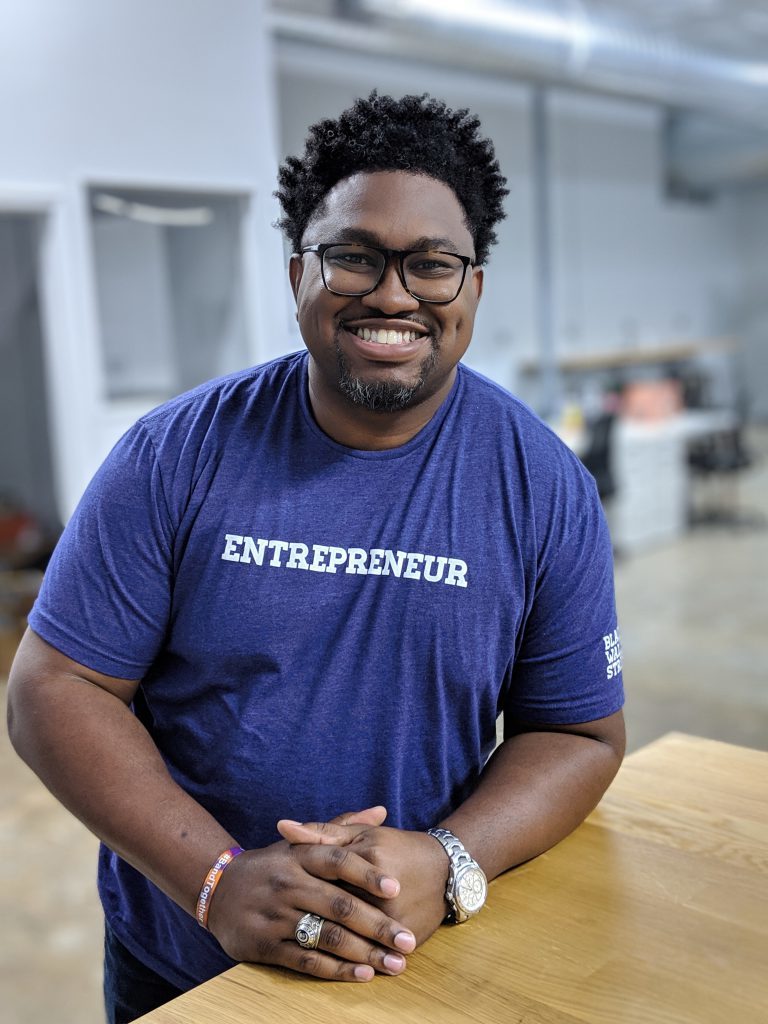Black Founders – Behind by Design

As I sit here today writing this piece, the country burns as thousands of Black Americans (and our allies) are expressing their pain and mourning the loss of countless citizens — most recently George Floyd, Ahmaud Arbery, and Breonna Taylor. While citizens of all backgrounds are marching in almost every major city, I can’t help but be reminded that 99 years ago today, the Tulsa race massacre (also known as the Black Wall Street massacre) began. By its end, nearly 300 Americans were killed as white residents attacked black residents and the businesses of the Greenwood District in Tulsa, Oklahoma. This attack, which happened on the ground as well as from private aircraft — which is wild — destroyed more than 35 blocks of what was the wealthiest Black community in the United States. The impact of that event decimated the Black economy in Tulsa and paints a clear picture of the state of Black business, access to capital, and the duality of the Black man and Black woman that most live in today, hoping for tomorrow, while still dealing with the past as it shows up each day.

When you examine the landscape of the “startup world”, especially as it relates to the access to capital, there are well-known and stark realities between who gets funding and how much. While Black women are starting businesses at a higher rate (representing 42% of new women-owned businesses) than any other demographic group in the country yet receive a fraction of the 2% of venture capital that went to women entrepreneurs in 2019. While the number of Black women-led startups has increased by more than 2.5x since 2016, startup funding has barely budged above the 0.2% initially reported in 2016. In an industry where metrics and returns should carry the day, these numbers exist even though founding teams with women outperform all-male teams.
While Black males fair better than our female counterparts, it is important to acknowledge the intersectionality of the bias that affects them as Black and as women. I can honestly say that I wouldn’t be here today without the support of women in my family like my wife, Mother, Grandmother, and Sister, but also the women that have advocated for me funded me and supported me throughout my career.
So it was vital for me to spotlight the plight of women, especially Black women, as my story doesn’t exist without theirs.
My entrepreneurship journey was not as planned
My entrepreneurship journey was not as planned and thought out as you’ll read in the memoirs of the great entrepreneurs of our time. Yes, I sold candy to other kids while in elementary and middle school. Yes, I found ways to make extra money throughout high school and college. But no, none of this was ever in my plan. As a first-generation American and son to Jamaican parents, the roadmap was clear: go to school, get good grades, and get a good job. I graduated from Clemson University with bachelor’s degrees in Economics and Political Science before spending nearly ten years in corporate America. I added an MBA — and some student loan debt — as I worked to advance my career in the evenings after my 9–5. I didn’t know it at the time, but I was improving my grit, investing in my confidence, and adding up all the “signals” that I’m told that investors look for in entrepreneurs that they back. When I finally made the leap and had my boats burned (a story for another time), I understood that this would be an incredibly challenging road. Still, I had a decade of experience in digital asset management and technology, several degrees from a top-25 public university, and the fire in my belly to build something that allowed me to provide for my family and impact the lives of others.
My 140th meeting
I’ll start my story at the end because it will help add context to my experience fundraising as a first-time founder, a Black Founder, and a founder that was building a company outside of the typical startup hubs (Greenville, SC). Bandwagon is an identity infrastructure company that delivers solutions to help our customers manage, aggregate, and store valuable consumer data. Consumers today are more aware than ever of the value and power of their data, and while companies have lost it (Equifax), misused it (Google), or flat-out weaponized it against us (hey, Facebook). For centuries, we have connected obscurity with security, but, at Bandwagon, we believe that there can be transparency without compromising trust. Headquartered In Greenville, SC, we have raised more than $2M, and we’re backed by Realist Ventures, Backstage Capital, Nex3, and SC Launch, Inc (as well as some incredible angel investors). I am incredibly proud of what we have built thus far, but the road was rocky. I had more than 140 “no’s” as I began taking investment meetings in 2016. My thought in tracking the “no’s” was to make sure that I was thinking through the feedback that I was receiving so that I would be better prepared for the next meeting, but after my 140th meeting, I realized that there are just some things that sales, product, or expertise can’t overcome.
At the time, I didn’t have a “team” page because I thought that the idea and the execution mattered most — I was wrong.
My 140th meeting actually started as a “yes” as a local investor that had only heard me pitch over a conference call agreed to invest $25,000. Seeing as how we were within driving distance of each other — and that he would be our first investor — I felt that we should get together for a coffee. He had his assistant schedule an early am breakfast meeting at his office, so one of my early team members and I made our way there the next day. The meeting lasted 15-minutes despite the nearly one-hour drive. He looked me directly in the eye and said, “You know what… now that I’ve had another night to think about it, I just don’t think that the company has the kind of leadership needed to make this a success.” I still remember that moment, and I recall feeling like my parents got me into the meeting by naming me Harold Patrick Hughes, but the moment I walked into the meeting. I understand that this is just one anecdotal story from one founder, but if you ask Black people, people of color, and women entrepreneurs, they will all share stories of racism, bias, and sexism.
As I examine the challenges Black Founders face regarding finding capital, I think about the complexities of the scenarios and the simplicity of the solutions. At the beginning of this piece, I talked about Tulsa. I also alluded to Minneapolis, Louisville, and Brunswick (Georgia) to emphasize the state of mind that Black entrepreneurs must live in a while also building in an era where systematic racism is still crippling [and don’t forget the normal stuff like Product Market Fit and Customer Acquisition Costs].
Is it a feature or a bug?
Ultimately, we see the venture capital community criticized for how poorly it works for BIPOC (Black, Indigenous, and People of Color) and women but in an industry that emphasizes designing a product for your customer and delighting the hell out of them, couldn’t it be that we just aren’t their ideal customer? Better said, are the ailments that we highlight a feature or a bug? Personally, I believe that we are behind by design and that’s not said in a defeatist way but rather to acknowledge the state of the current ecosystem. It is impossible to treat an illness that isn’t identified so I believe that the first thing that we should do is acknowledge the barriers that exist in the funding cycle, why they were created, and who they impact the most. Only then can we start to build new systems that allow capital to find the most innovative and enterprising founders regardless of their race, gender, religion, or geography.
Make the hire, Send the wire
The good news for founders is that the work is being done. Large companies like Google are investing in infrastructure for Black founders. We are seeing more Black fund managers and women fund managers than ever. There are funds and programs for LGBTQ+ founders, veteran founders, as well as startup resources that focus on geographies that are typically left out and considered “fly over”.
The good news for investors is that there is no pipeline problem and that increasing diversity in your portfolio (or team page) is as easy as making the hire and writing the check, or as Tiffany Bell of The Human Utility puts it, “make the hire, send the wire”.
While venture firms like Backstage Capital have found more than 100 companies to back, there are new pools of capital being made available to entrepreneurs from syndicates of high-net-worth Black angel investors to crowdfunding platforms like Republic that allow anyone to invest with as little as $10. The future is incredibly bright for Black Founders and investors as well as consumers that will benefit from the creation of their solutions. Whether entrepreneurs are creating peace of mind and healthy snacks for the entire family or reinventing the financial system and reimagining e-commerce, the possibilities being created by Black Founders are endless. We are creators, we are curators, we are builders, and we are designers. Through it all, we are finding ways to uplift one another, navigate the unpredictable funding landscape, and change the world but we need our allies to have the tough conversations with their family members, friends, and coworkers if we’re ever going to see the American society that we wax poetic about. So the next time you hear someone say, “this isn’t the America that I know,” remind them that not only is it the America that we have known for centuries but it has a design flaw, and you know the builders and doers that are doing the work to fix it — with or without permission.



